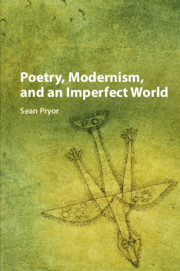
- Cited by 3
-
Cited byCrossref Citations
This Book has been cited by the following publications. This list is generated based on data provided by Crossref.
Bernard, Catherine 2018. Recently published (2015-2017). Études britanniques contemporaines,
Levay, Matthew Bratton, Francesca Krzakowski, Caroline Keese, Andrew Corser, Sophie Livingstone, Catriona West, Mark Cooper, Samuel D’Monte, Rebecca Rodríguez Martín, Gustavo A Saunders, Graham Baker, William Masud, Noreen Creasy, Matthew Alonso, Alex and O’Hanlon, Karl 2019. XIV Modern Literature. The Year's Work in English Studies, Vol. 98, Issue. 1, p. 858.
Scuriatti, Laura 2024. Rethinking Lyric Communities. Vol. 30, Issue. , p. 135.
- Publisher:
- Cambridge University Press
- Online publication date:
- March 2017
- Print publication year:
- 2017
- Online ISBN:
- 9781316876909
- Subjects:
- Literature, Literary Texts, English Literature 1900-1945


